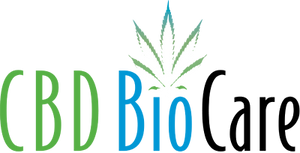CBD for Autism
By Dr. Frank Michalski
Autism spectrum disorder or ASD is a developmental disorder that impairs the ability to communicate and interact. ASD is characterized by impairments in social, language, and communication skills.
ASD is referred to as a spectrum disorder because the level of disability varies among individuals. ASD also includes those who were previously diagnosed with Asperger’s disorder.ASD impacts over 200,000 people a year. ASD is commonly diagnosed in early childhood. ASD is frequently accompanied by seizure disorders.
ASD includes a wide array of symptoms. A few symptoms are listed in the chart below, according to category.
Reference: CBD What You Need To Know
|
Behavioral |
Cognitive |
Developmental |
Psychological |
Other |
|
Compulsive |
Problems paying attention |
Speech delay |
Depression |
Tics |
|
Poor eye contact |
|
Learning disability |
Anxiety |
Light sensitive |
|
Self-harm |
|
|
Lack of awareness |
Sound |
|
Repetitive movements |
|
|
|
Touch |
In recent years there has been an increase in the number of children identified with ASD. There is currently disagreement about whether diagnosis has increased due to guideline expansion or a rise in cases. Screening for this disorder has also increased over the years due to heightened awareness.
Possible Risk Factors & Treatment Options
There is no known cause of autism, but there are some risk factors that have been identified by The National Institute of Mental Health listed below:
- Boys are more likely to develop autism than girls
- Having a sibling with ASD
- Having older parents, a mother over the age of 35 and a father over the age of 40 at birth.
- Genetics
There is no cure for ASD. Many with the condition are enrolled in therapy that focuses on social, behavioral, and language skills. Medication may be prescribed to help alleviate some common symptoms that accompany autism, such as seizure, depression, anxiety, behavioral problems.
CBD & Autism
Because current treatments are so limited, many parents of autistic children are exploring using complementary and alternative medicine.
According to CBD A Patients Guide to Medicinal Cannabis A 2013 study compared autistic children to non-autistic children. The children demonstrated a difference in the number of CB2 receptors and indicated neurotransmitters present in the body. This would imply the ECS may be a potential target for therapy.
When taking into consideration, the vast array of symptoms autism encompasses including, pain, anxiety. Hyperactivity, repetitive behavior, and seizures (30% of ASD) it would be hard not to consider the use of CBD.
Study 1: At the University of California, the researchers found that “CBD regulates emotion and focus, acting as a neuroprotectant against further nerve cell damage. CBD has reduced anxiety, rage, and hostility in patients by inducing a calm demeanor.”
Study 2: A 2013 study found a link between a protein implicated in autism and the ECS. Senior author on the study Dr. Thomas Sudhof of Stanford University described the study findings as "a potential novel strategy for understanding the complex causes of brain disorders."
Study 3: In 2016, a clinical study out of Israel looked at the use of CBD in 188 autistic children. The study concluded that CBD was useful for a variety of ASD symptoms, including seizures, tics, depression, restlessness, and rage attacks. Overall more than 80% of the parents reported significant improvement or moderate improvement in their child."
Research is still minimal but evolving rapidly surrounding CBD and ASD.
CBD Dosage
For those children who have ASD and a seizure disorder ½ milligram per pound/weight, divided into three, equal, daily doses (morning, afternoon, bedtime.) So a child weighing 100 LBS would take 17mg, three times a day, for a total of 50mg. Continue to increase by ½ milligram per pound, every four days till desired effect. Caution: make sure the product does not contain THC, unless under the supervision of a health care professional.
The maximal recommended dose is 5mg per pound per day. Always start slow and increase as needed.
Final thoughts:
“It was reported in the Journal of Global Pediatric Health that it is ill-advised for physicians to merely inform parents there is no evidence to support the use of CBD for their child with ASD. Parents will be disappointed with their doctor's lack of knowledge on the subject. Evanoffa and colleagues reported that physicians in training in the United States felt unprepared to prescribe marijuana or answer questions regarding cannabis. The authors cited that only 9% of US medical schools have clinical cannabis content in their curricula.”
*This content is strictly the opinion of Dr. Frank Michalski and is for informational and educational purposes only. It is not intended to provide medical advice or to take the place of medical advice or treatment from a personal physician. All viewers of this content are advised to consult their doctors or qualified health professionals regarding specific health questions. Neither Dr. Frank Michalski nor the publisher of this content takes responsibility for possible health consequences of any person or persons reading or following the information in this educational content. All viewers of this content, especially those taking prescription or over-the-counter medications, should consult their physicians before beginning any nutrition, supplement, or lifestyle program.
References:
- CBD: A Patients Guide To Medicinal Cannabis
- CBD: What You Need to Know
- choosing a selection results in a full page refresh
